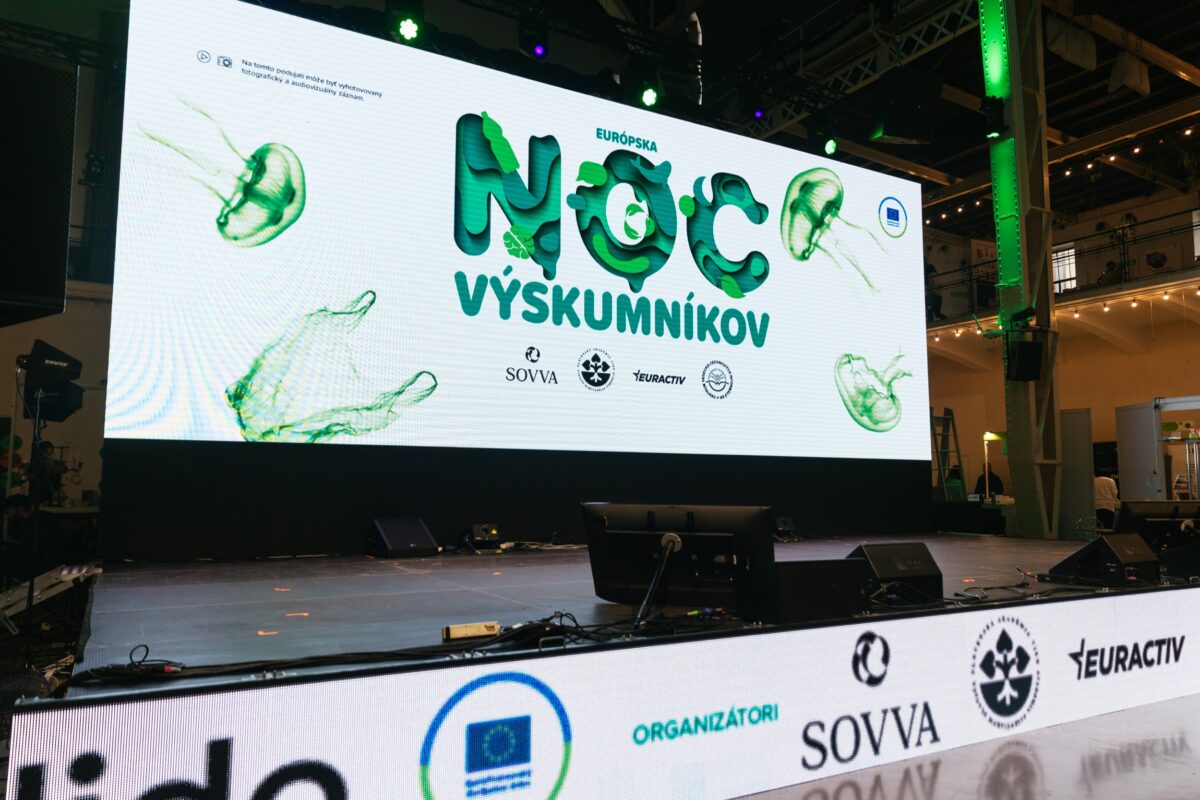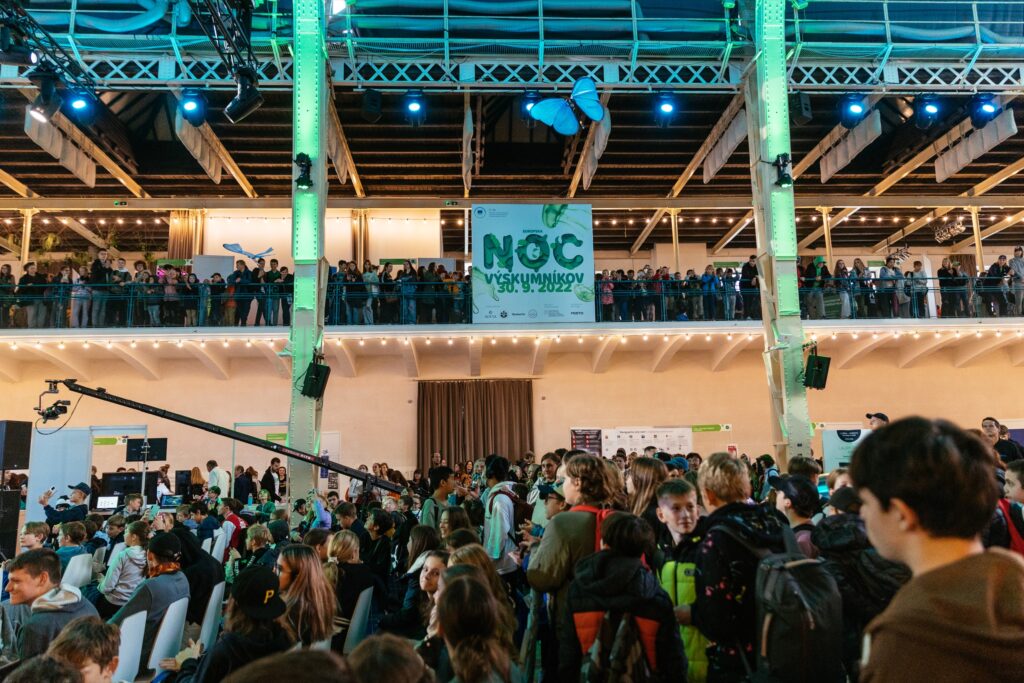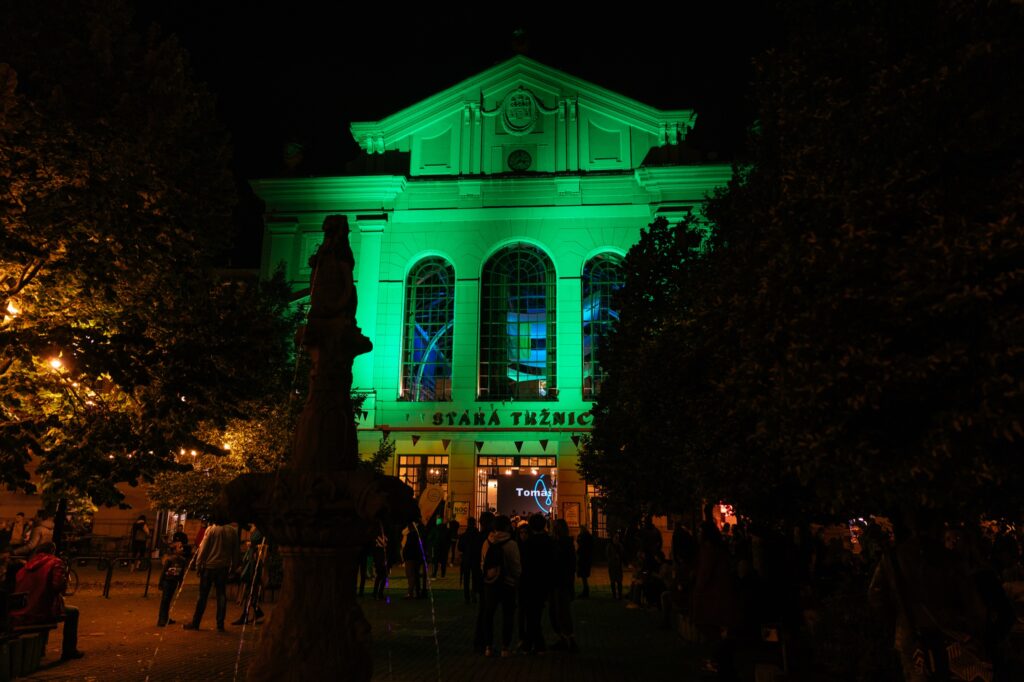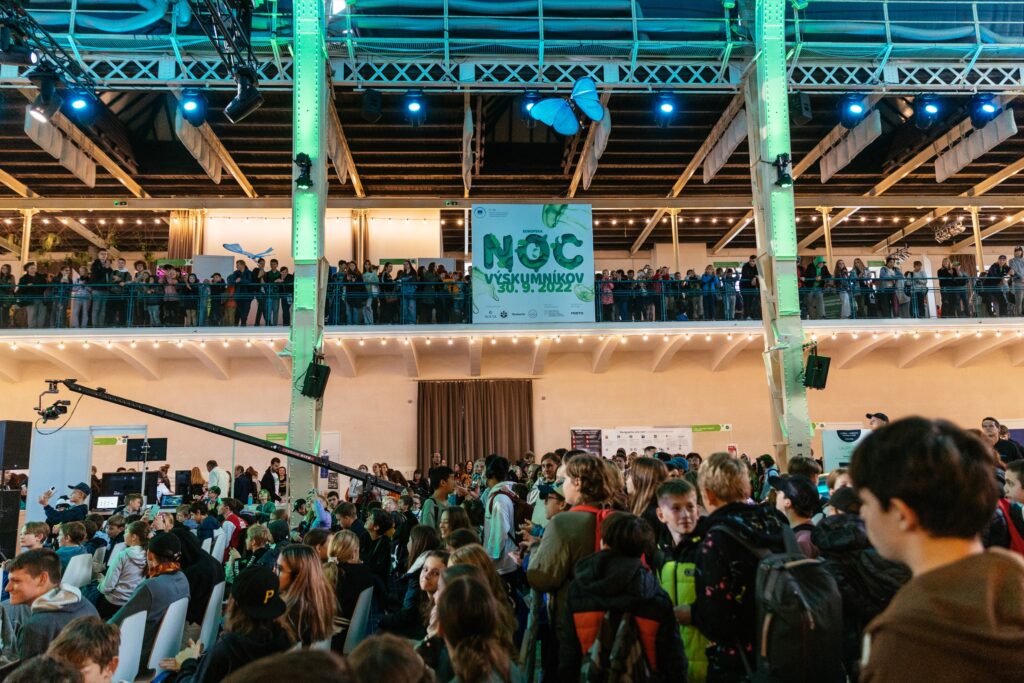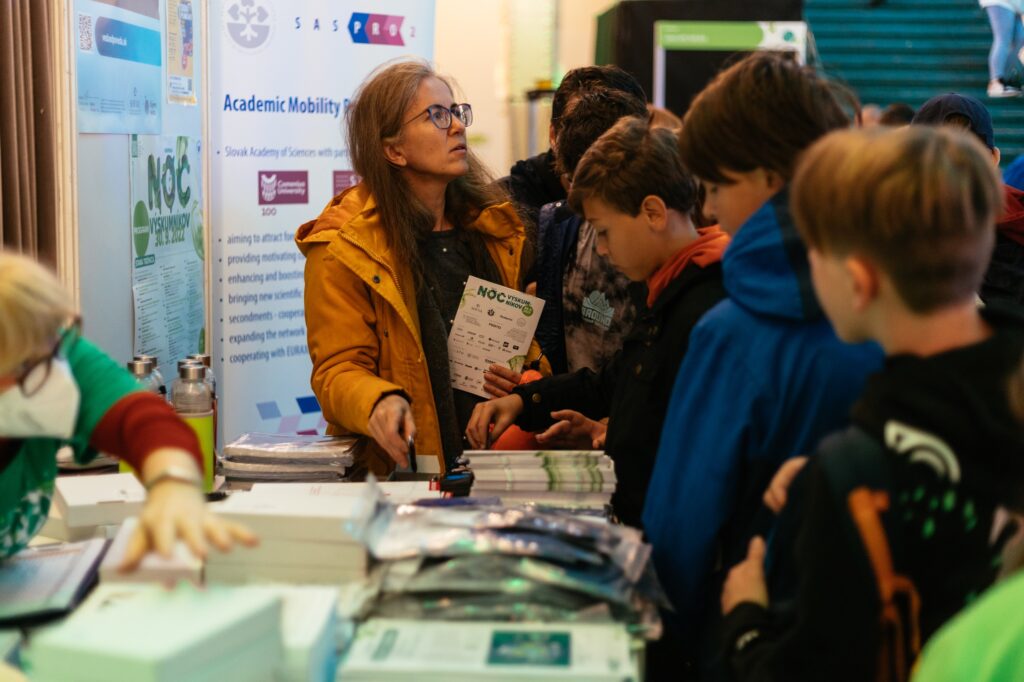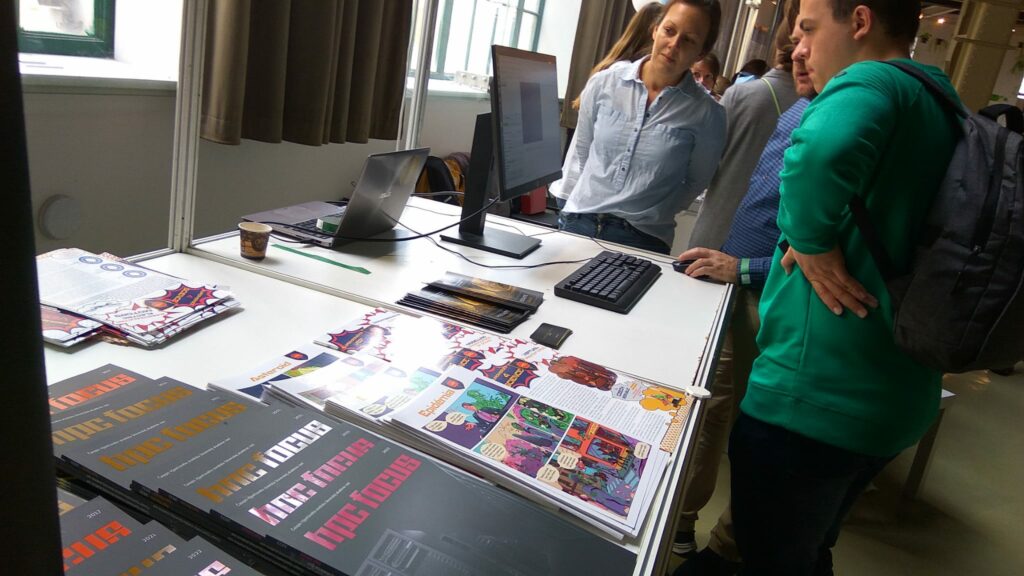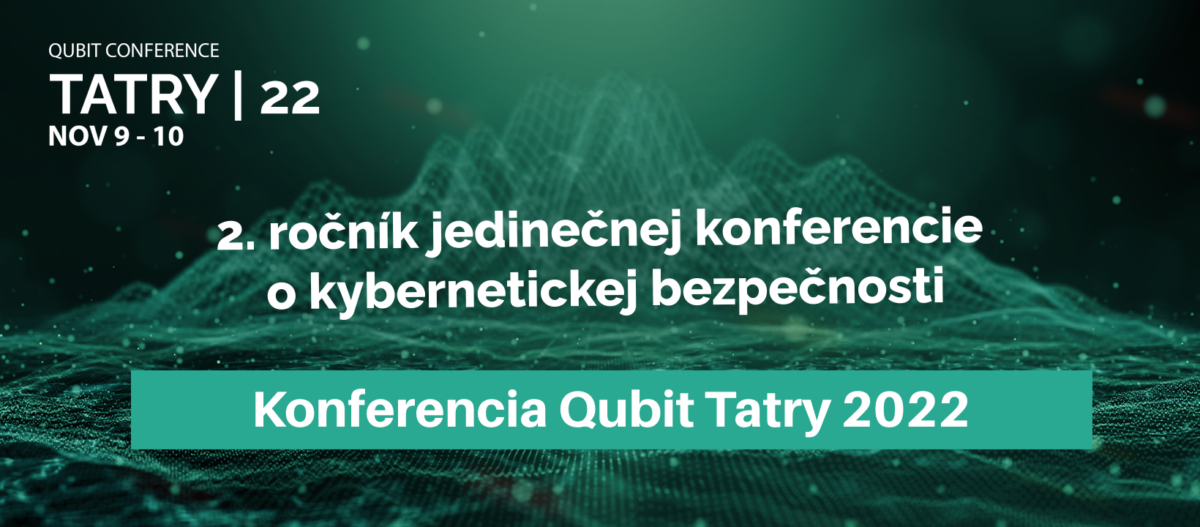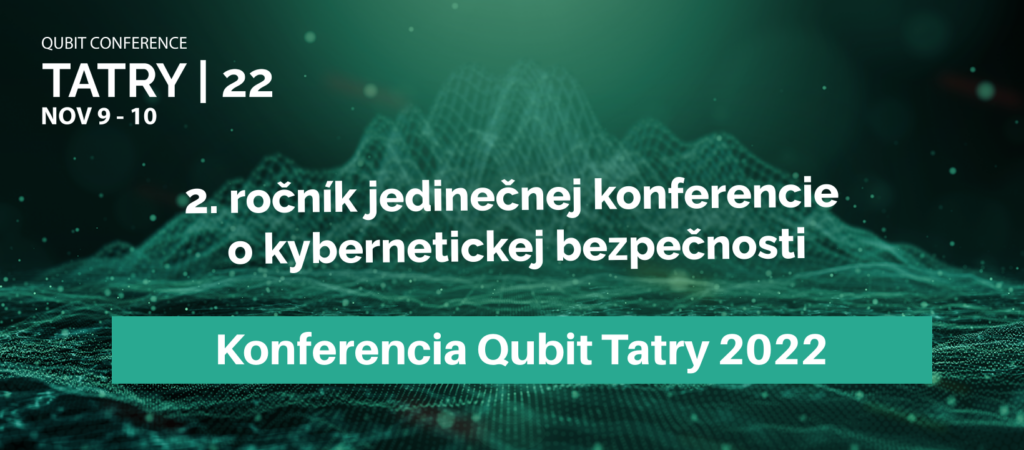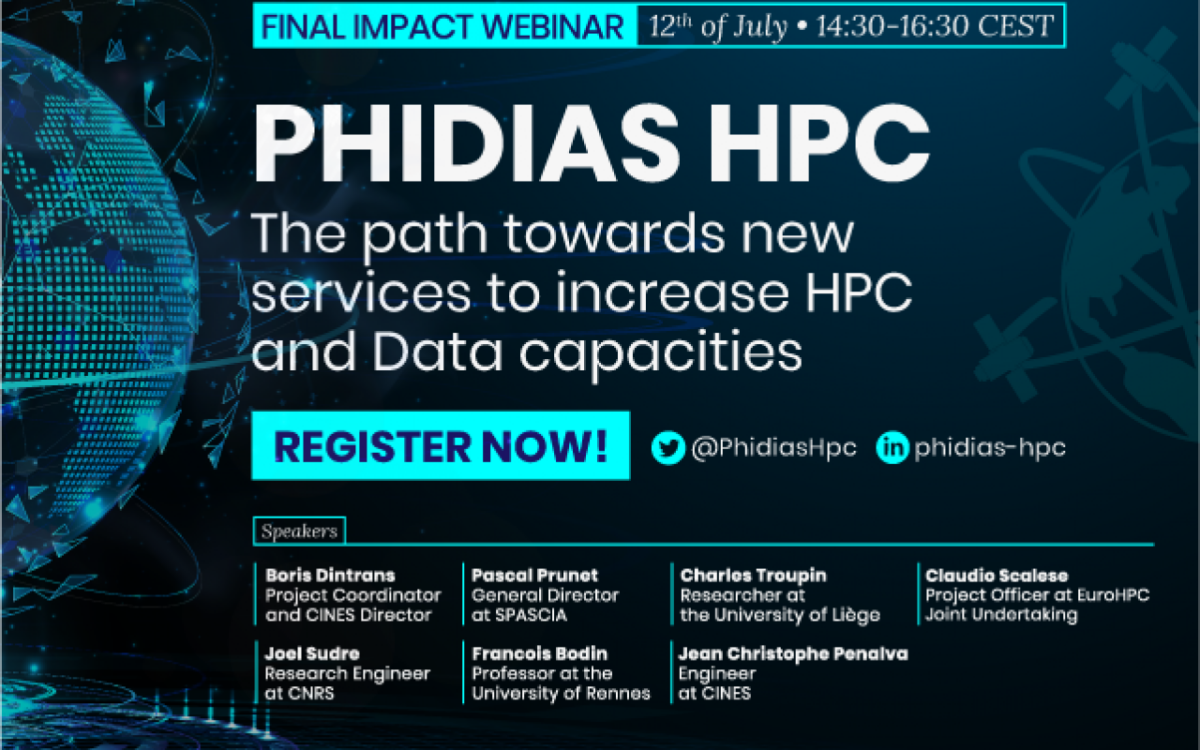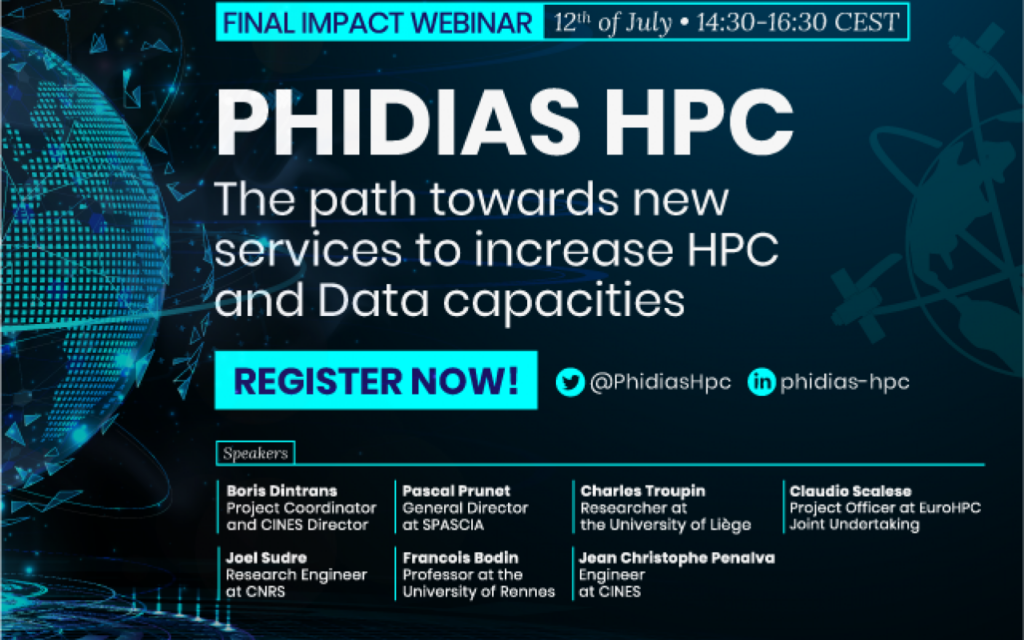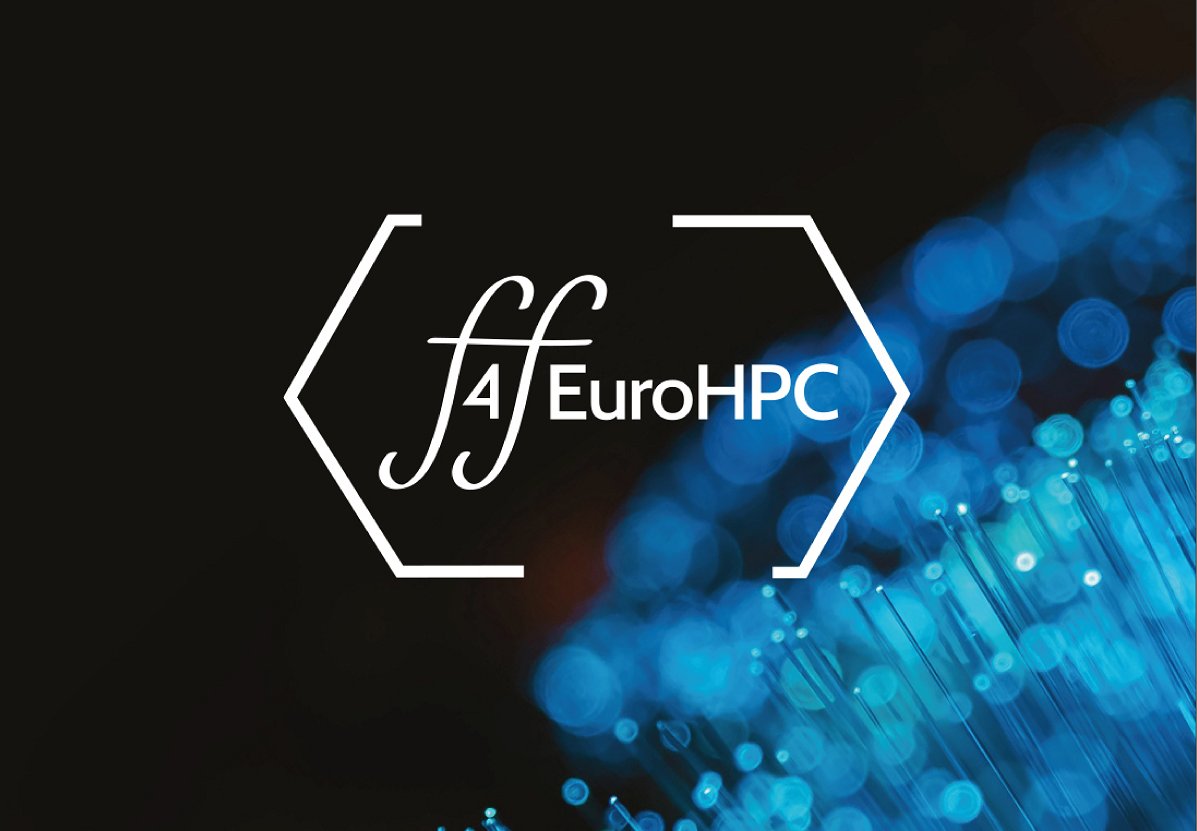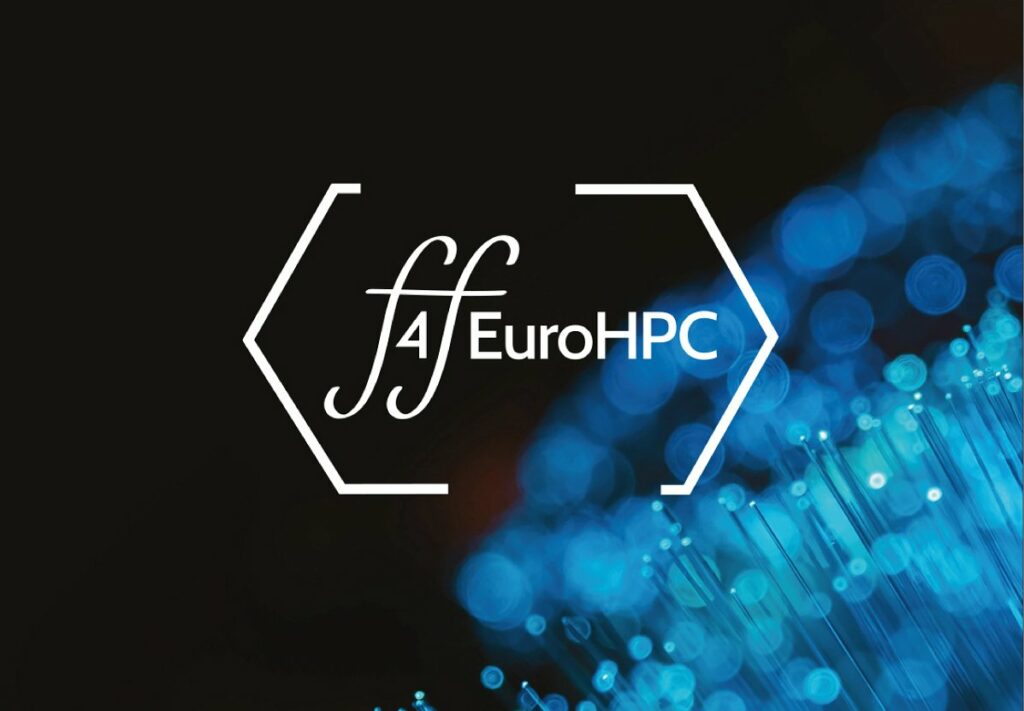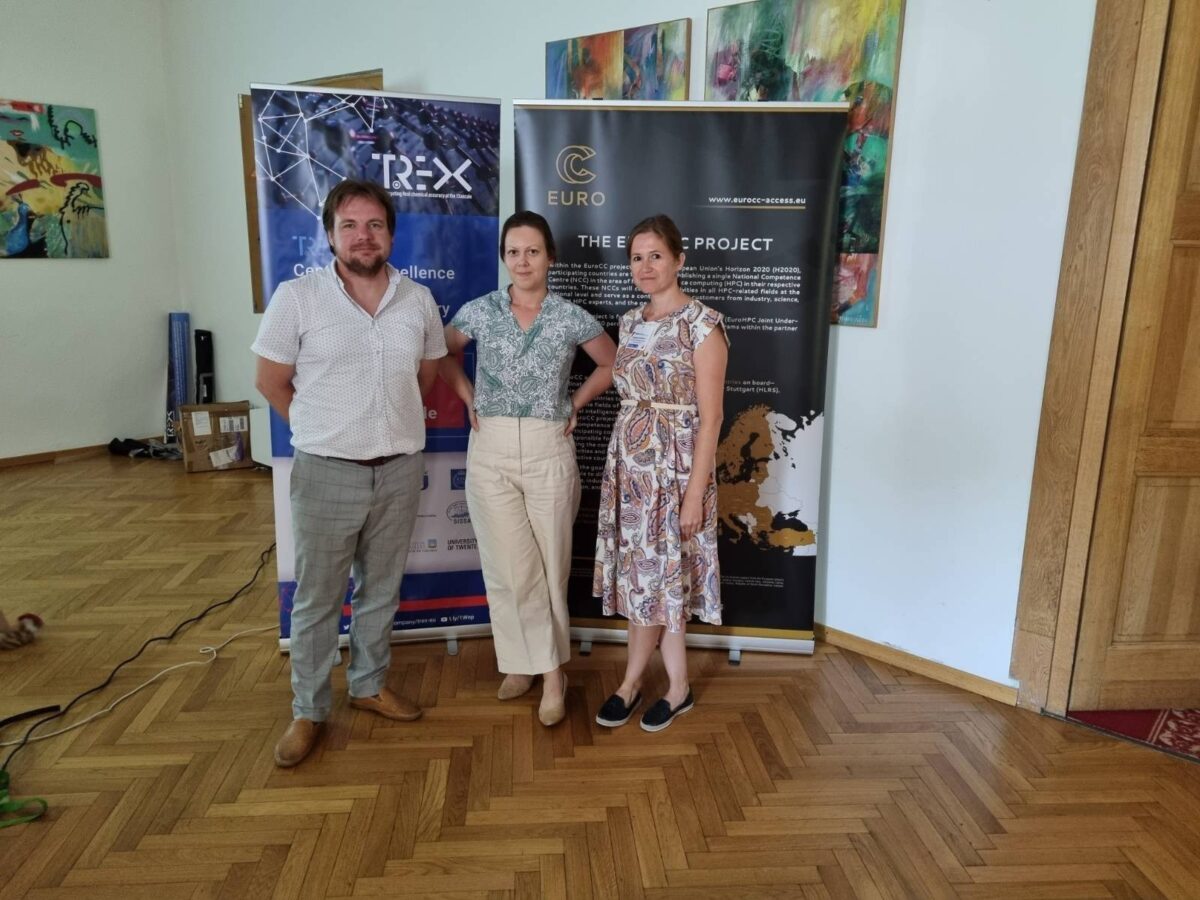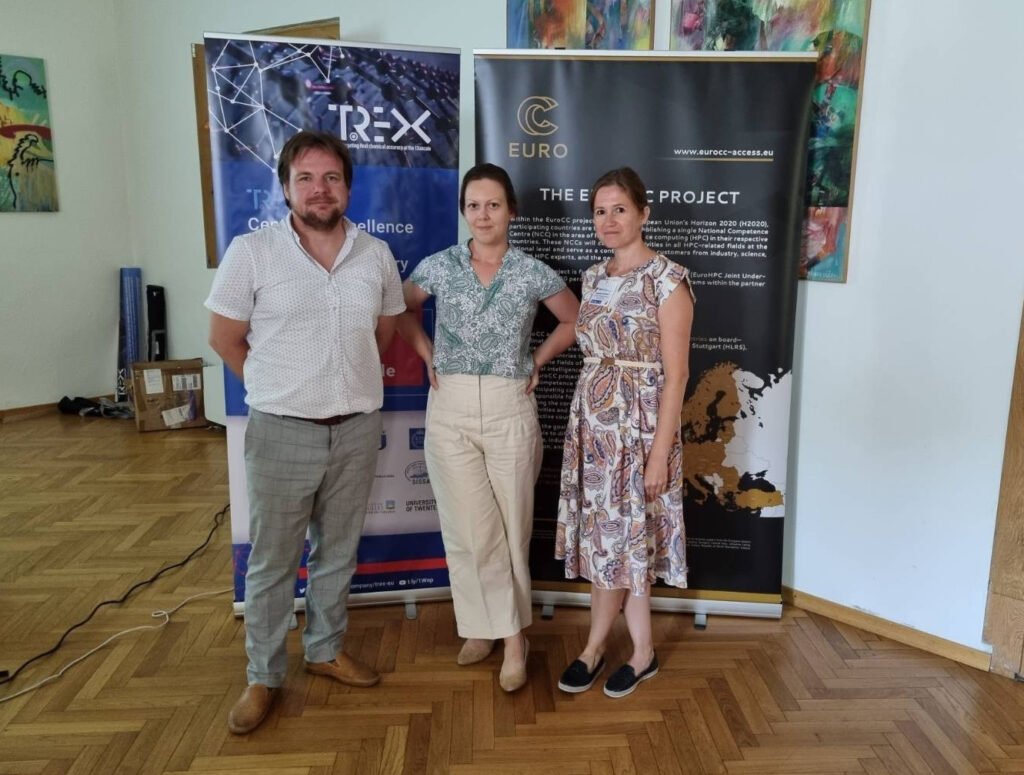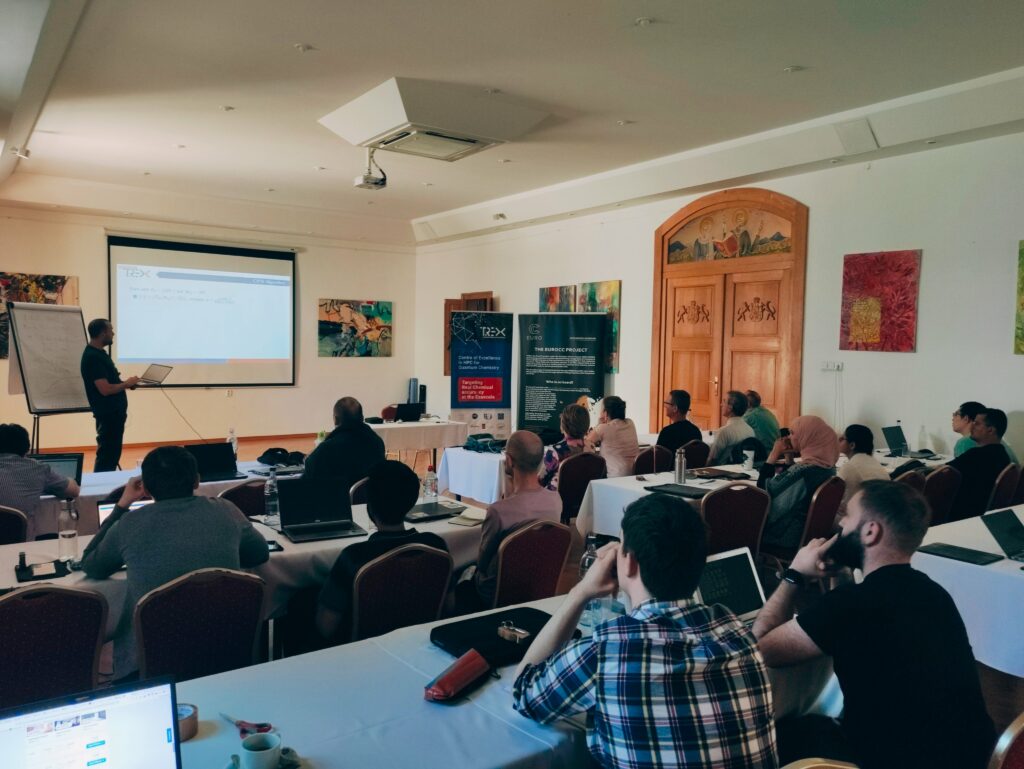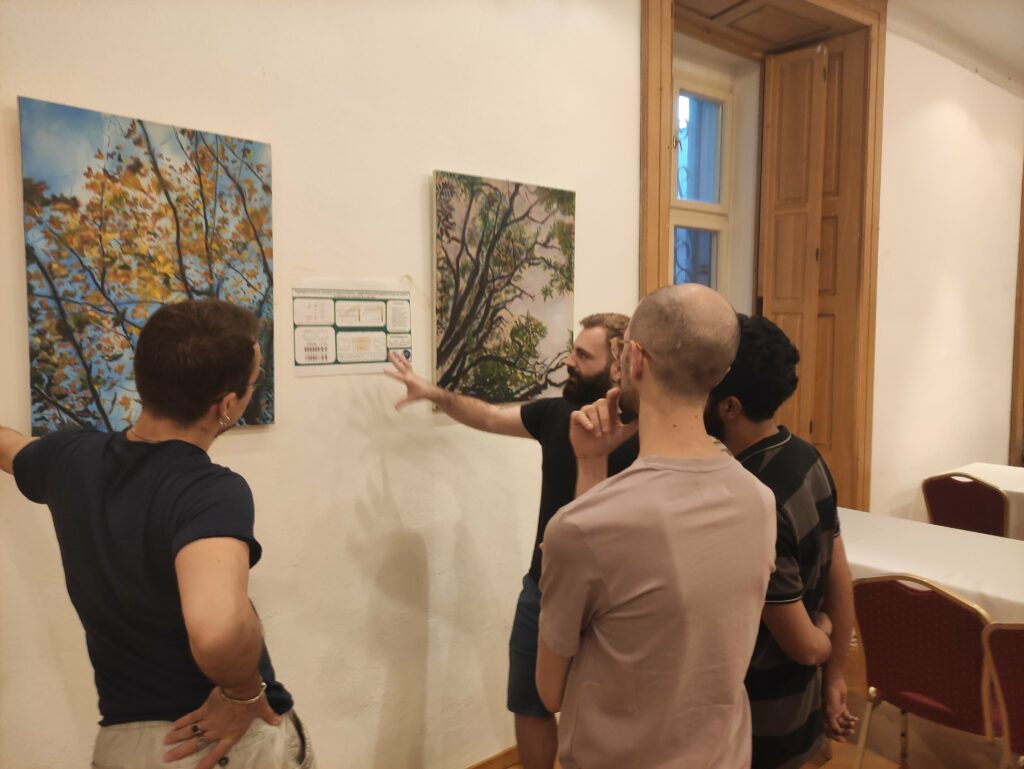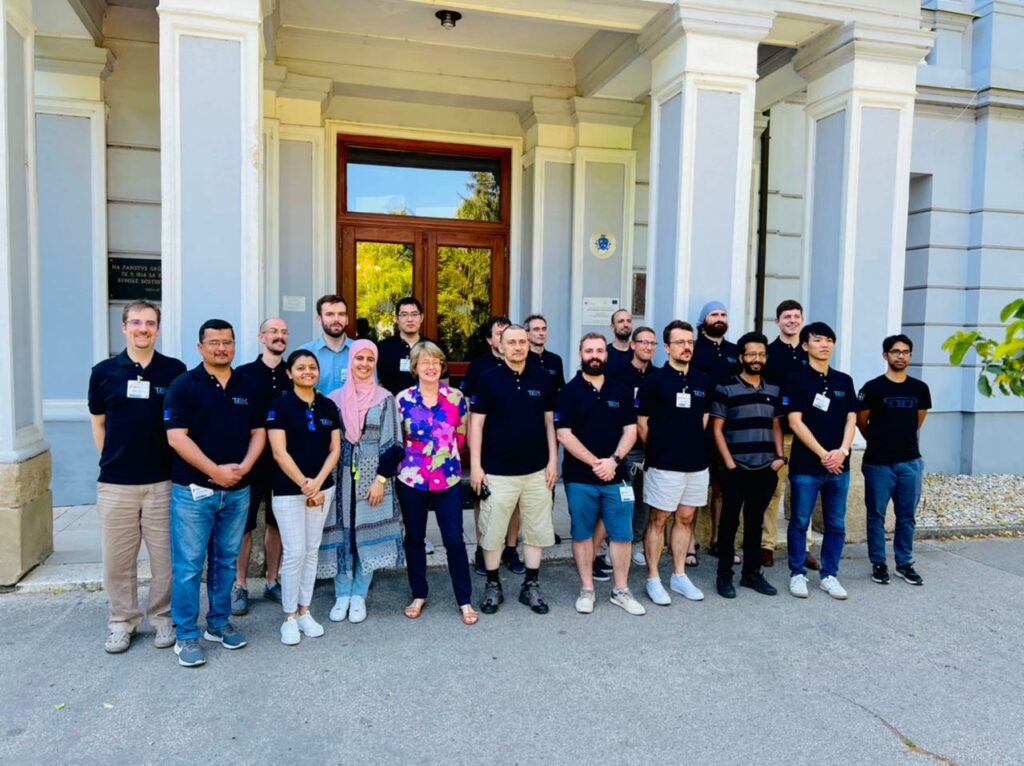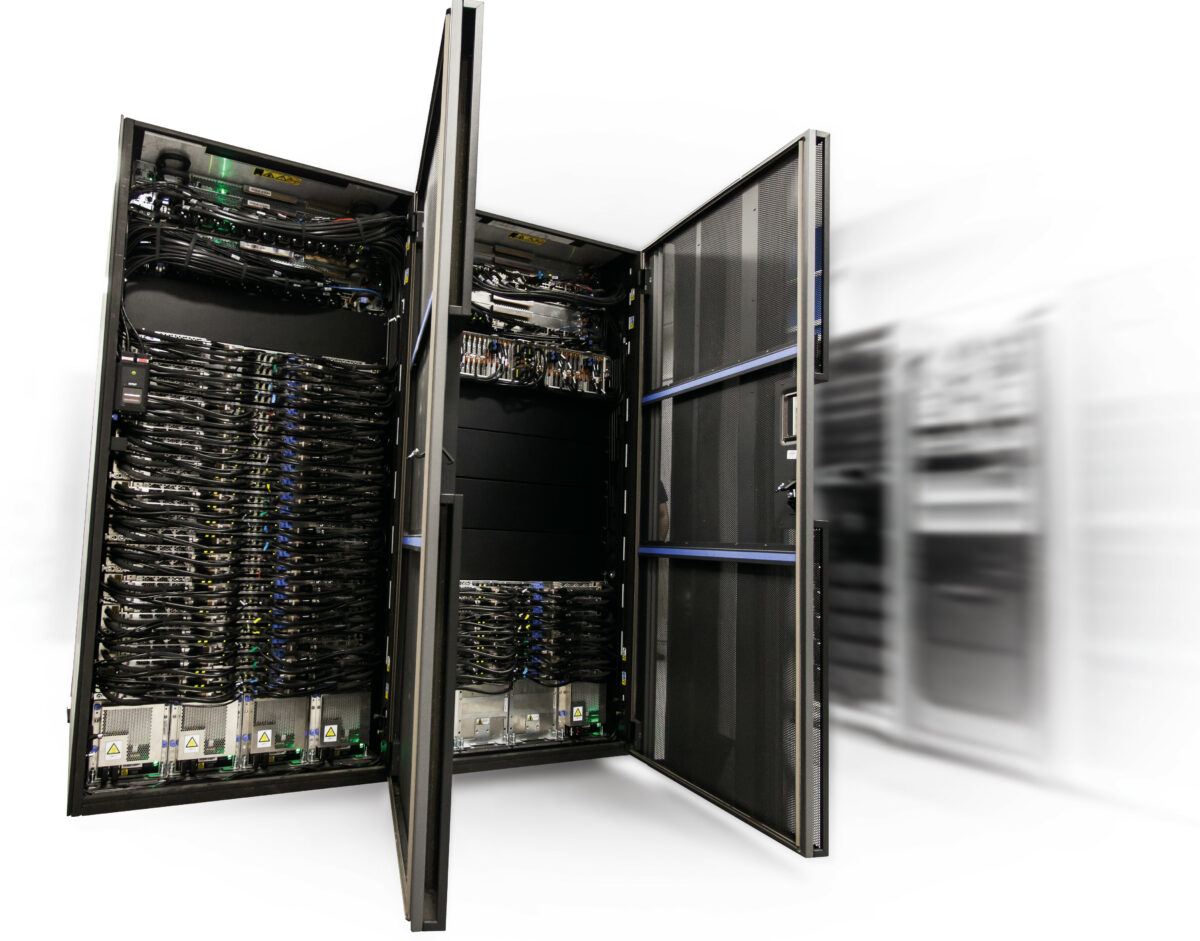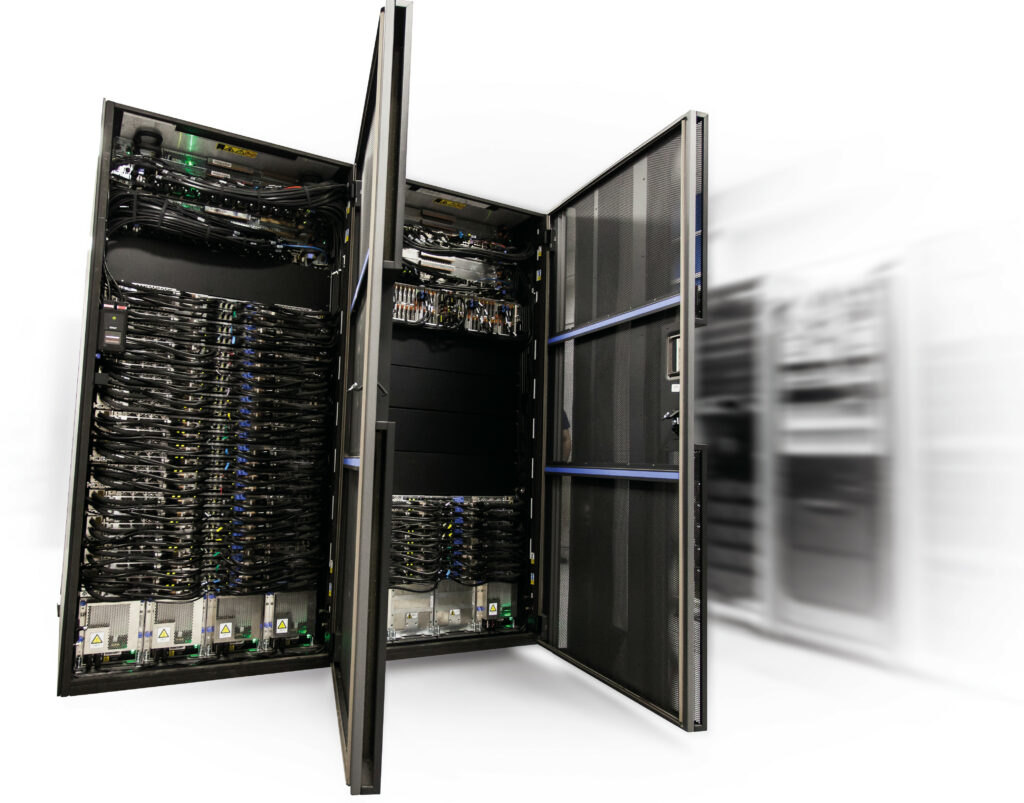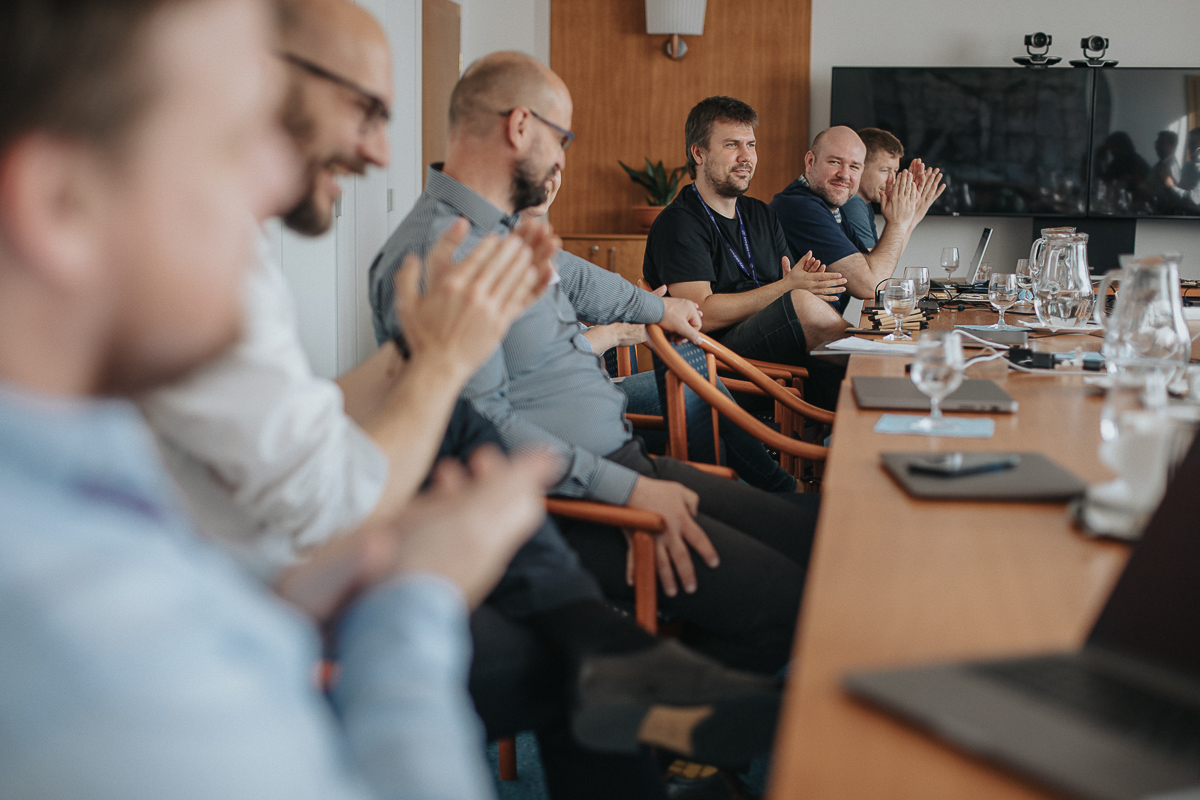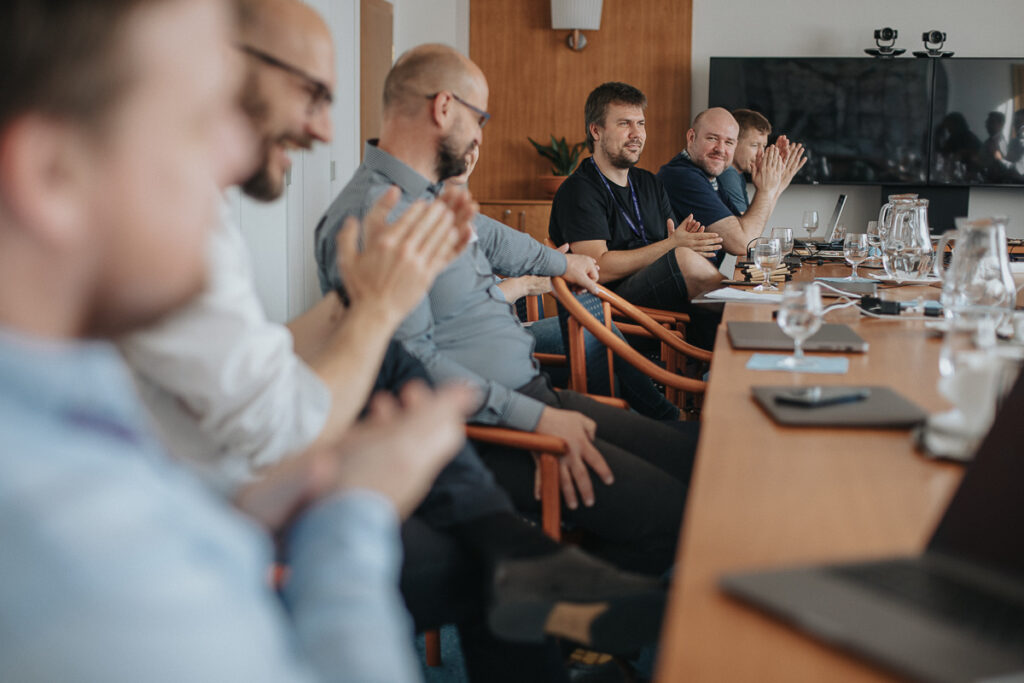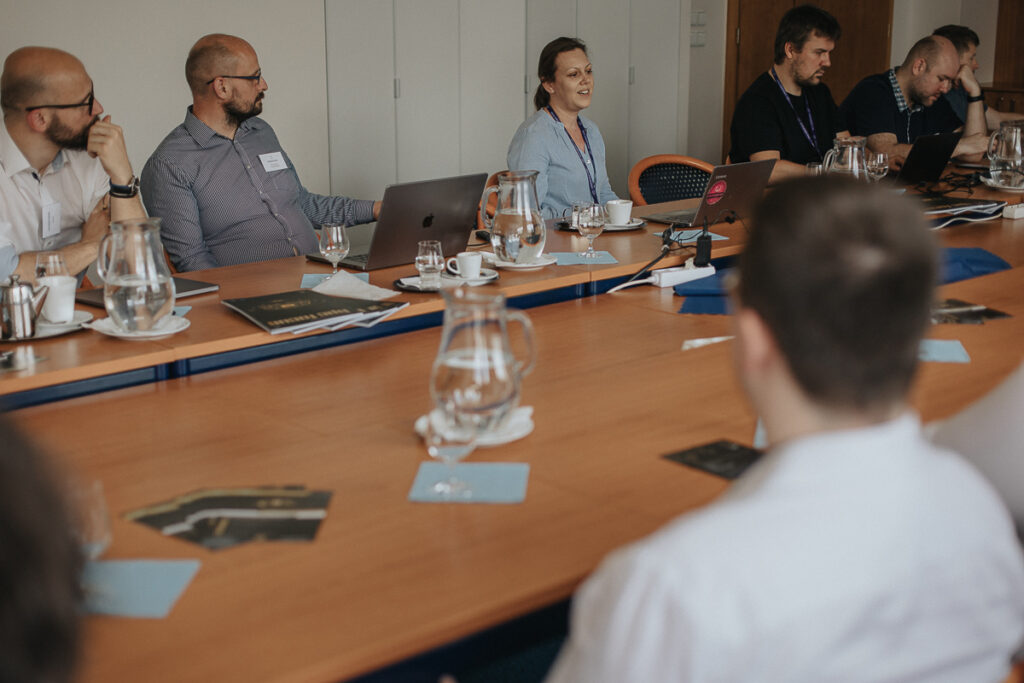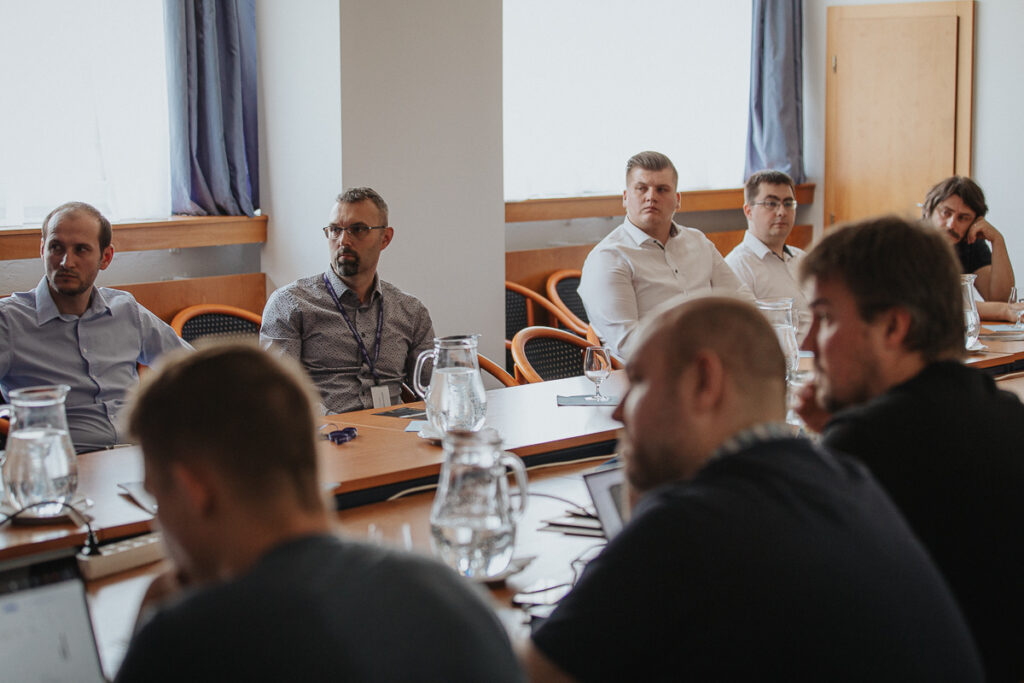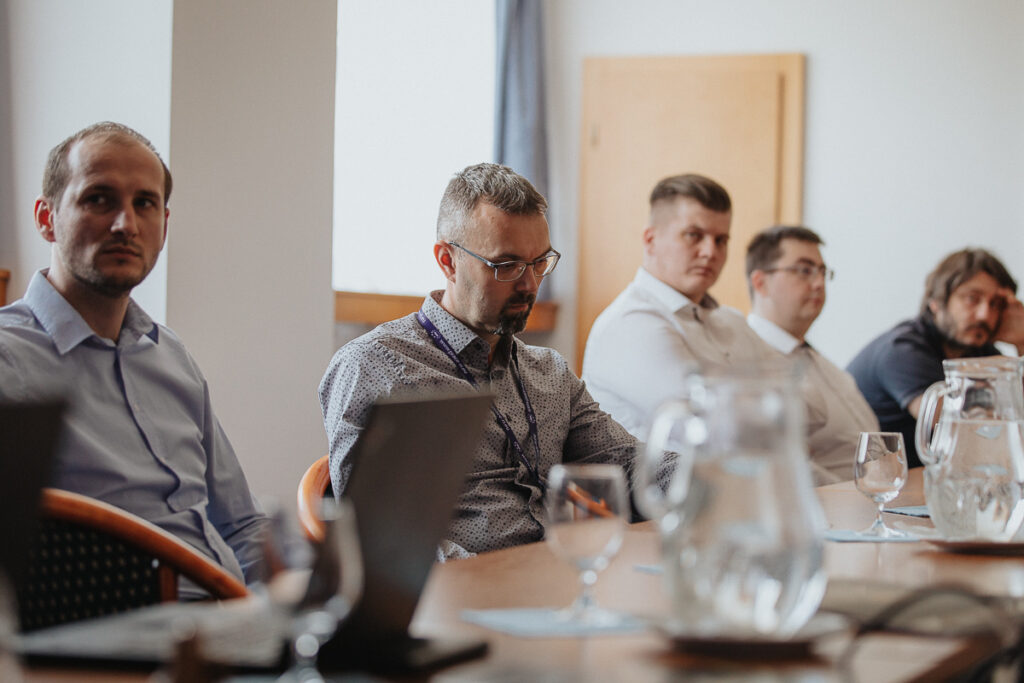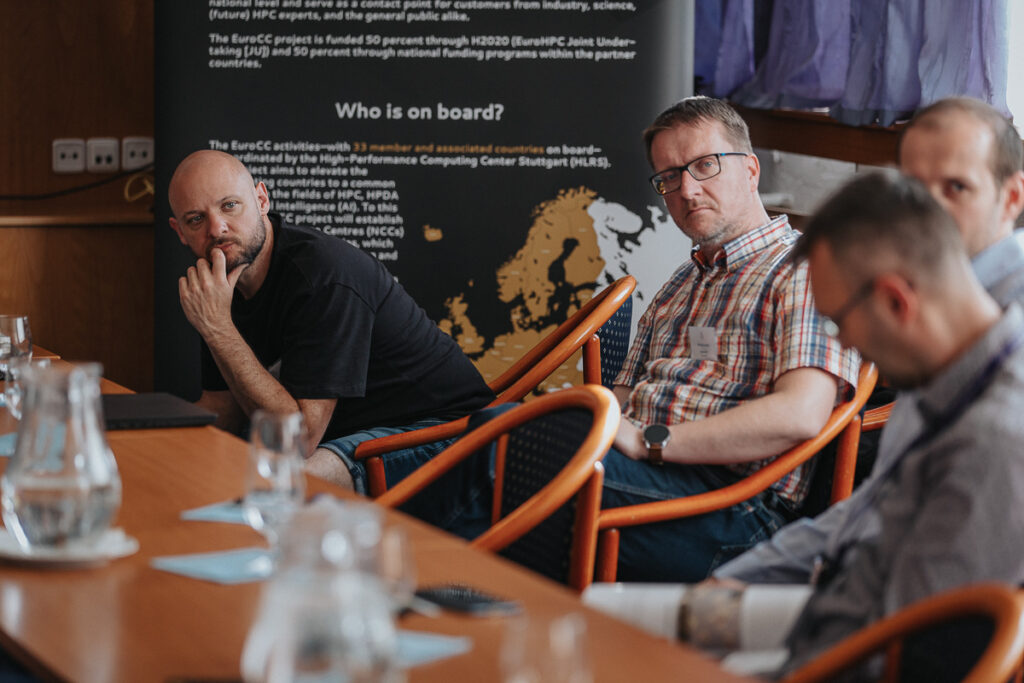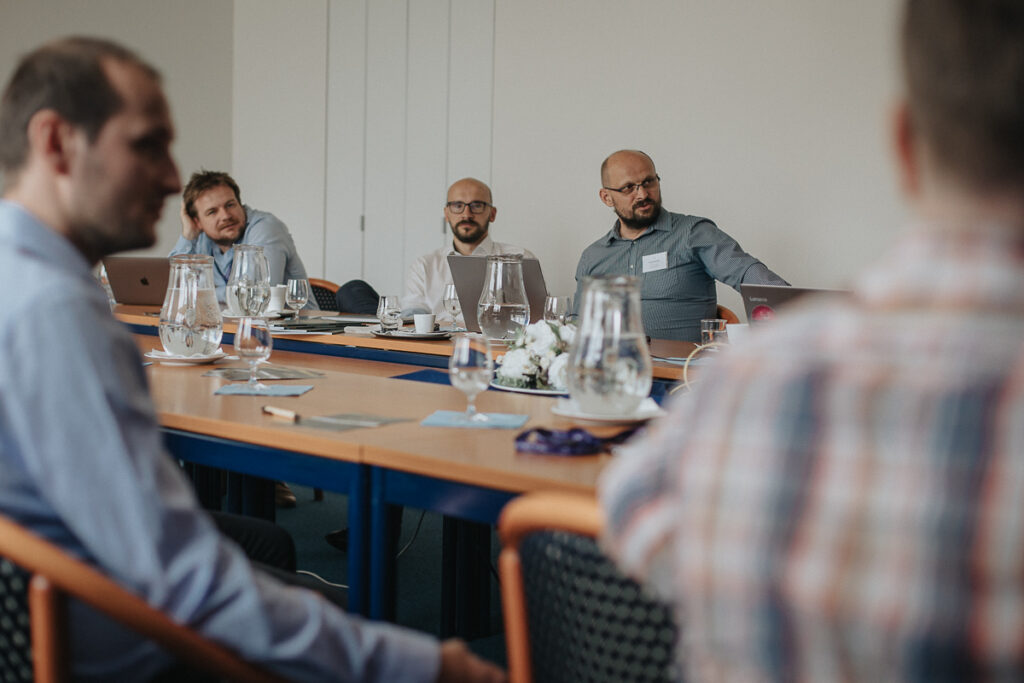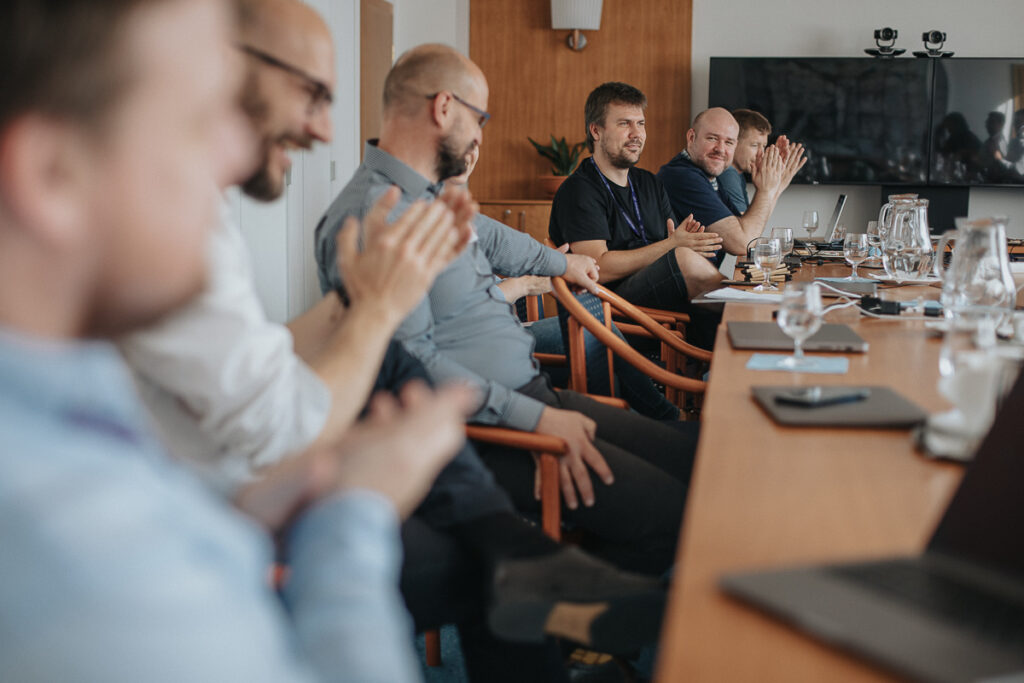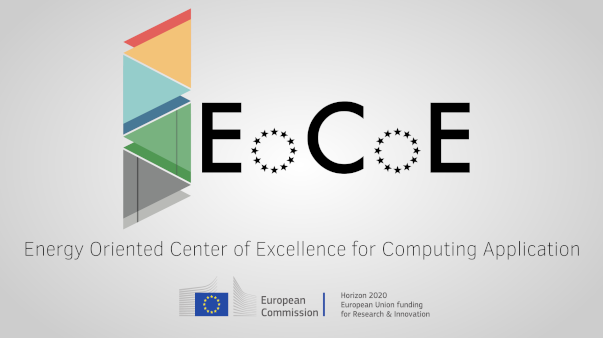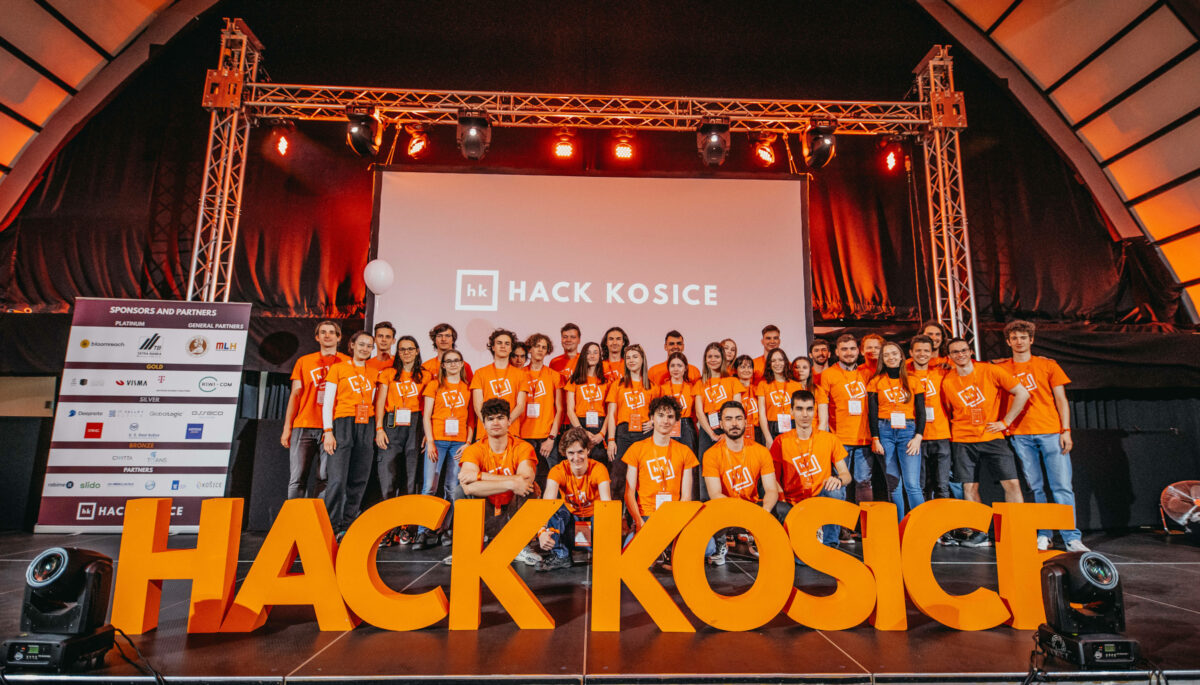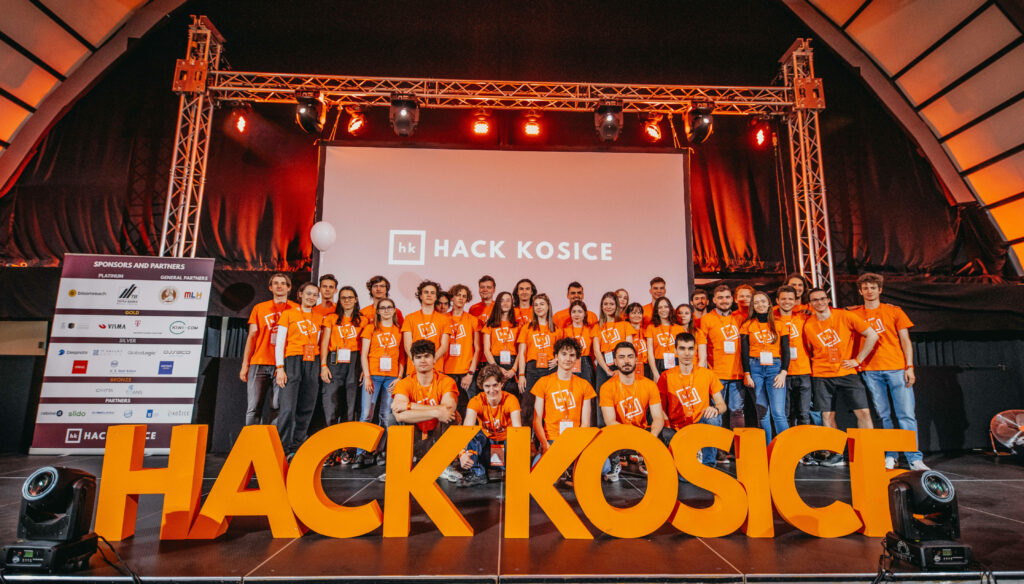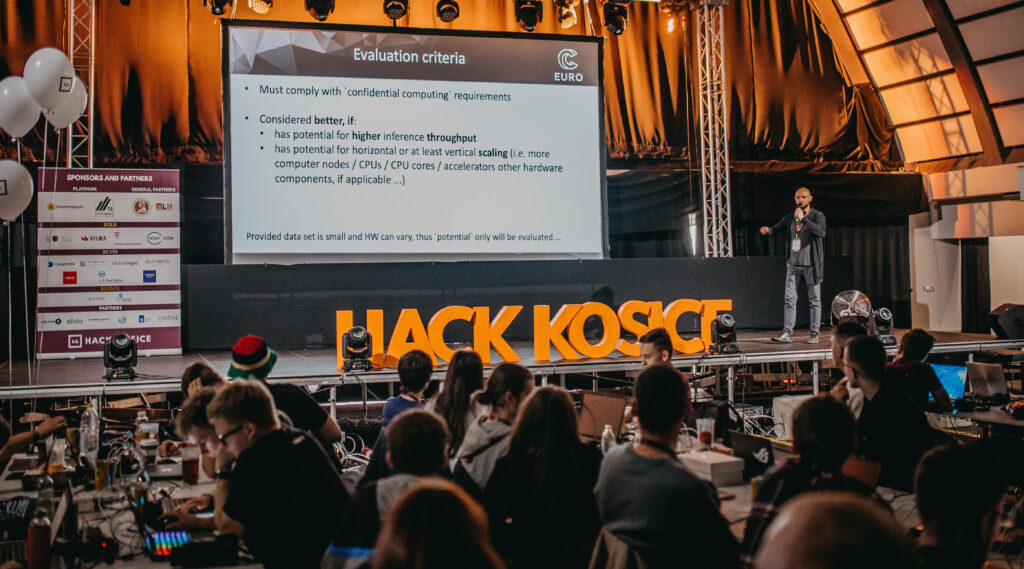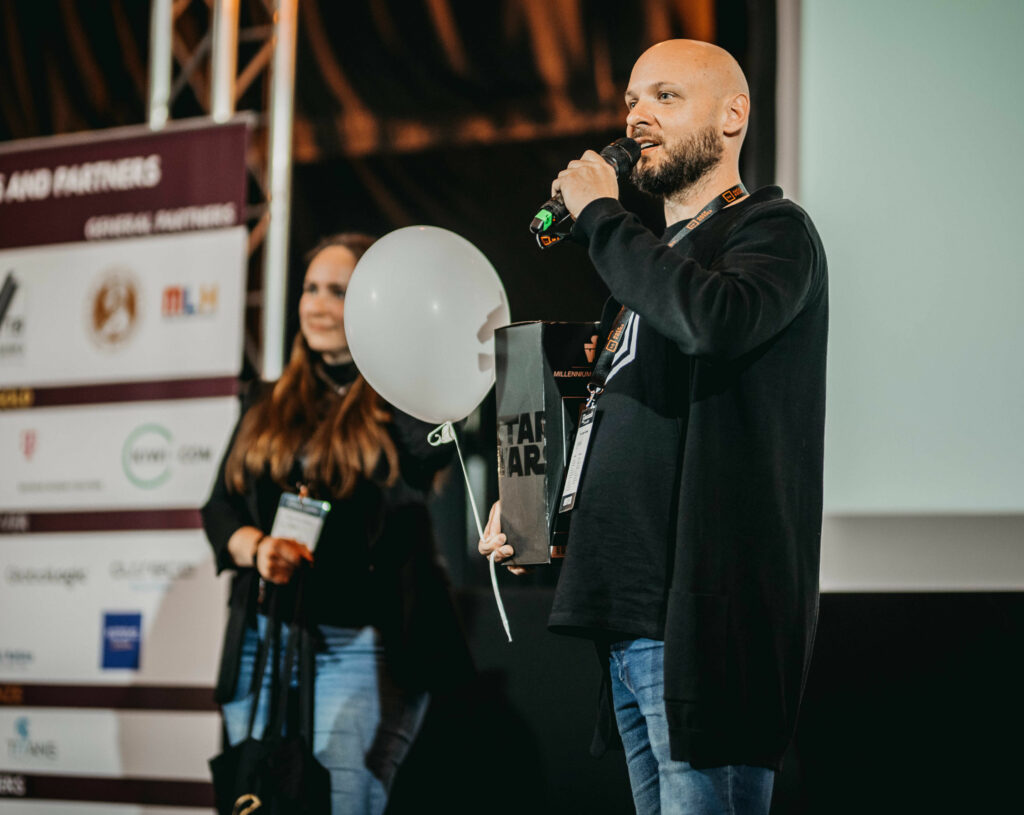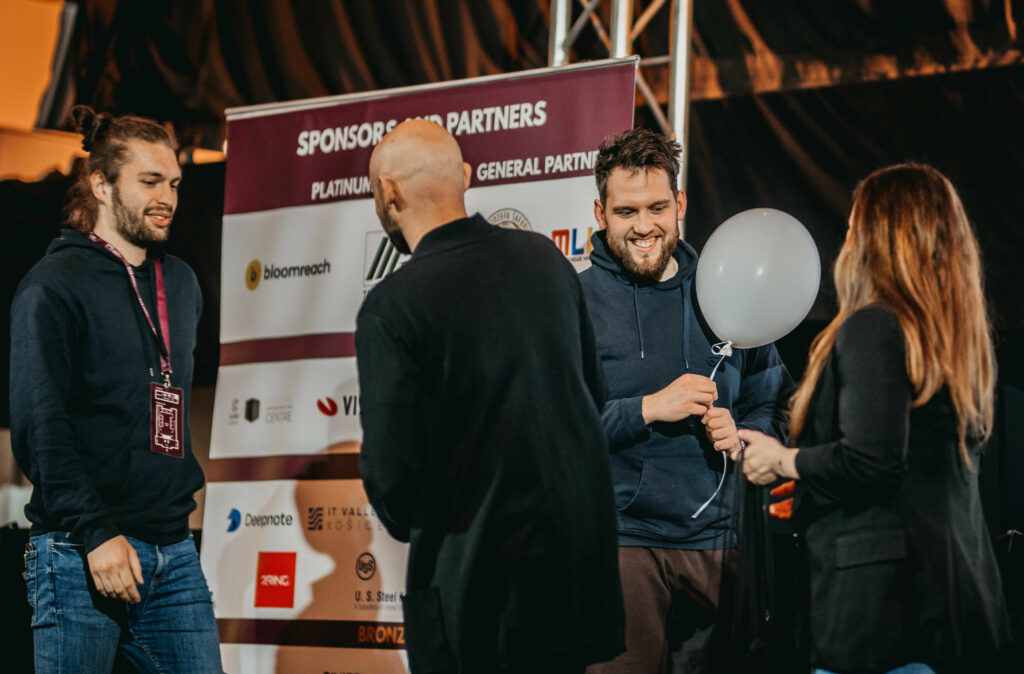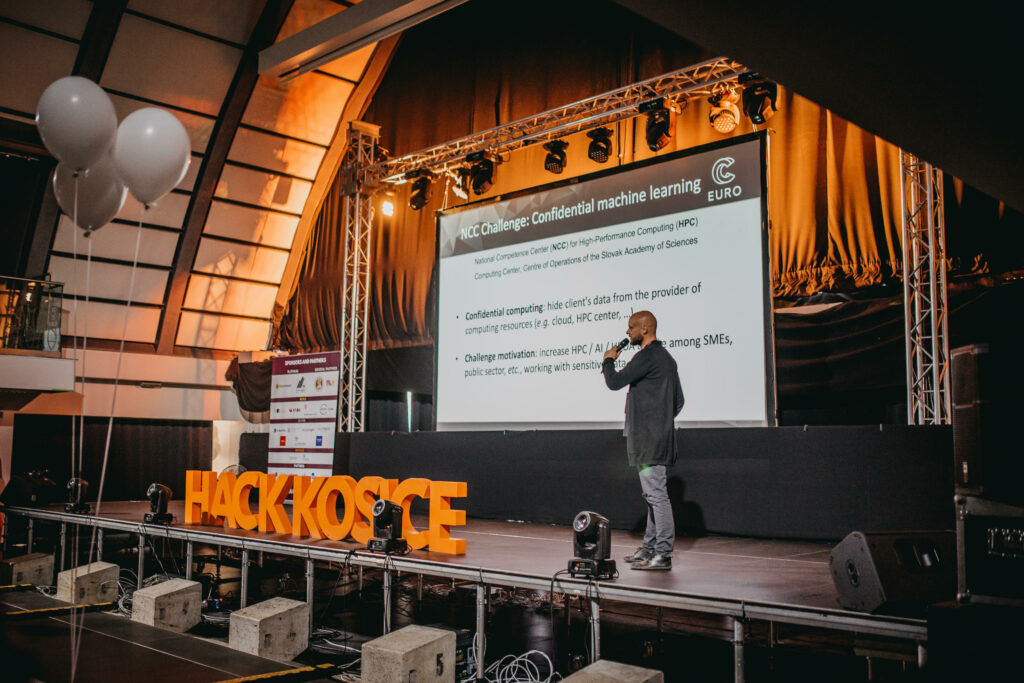National Competence Centre at Researchers' Night
The main organizer of the event, the Slovak Organization for Research and Development Activities in cooperation with the Slovak Academy of Sciences also EurActiv.sk from Center for Scientific and Technical Information of the Slovak Republiconce again prepared a rich and extremely varied program that appealed to all age categories and interest groups.
The last Friday of September in Bratislava's Stara tržnica belonged to the European night of researchers. Also at the 16th year of this event, visitors had the opportunity to learn more about supercomputers and high-performance computing. Experts from the National Competence Center for High-Performance Computing (HPC) welcomed a number of curious visitors of various age groups to their stand, who were interested in supercomputers and their practical use. The team of the competence center briefly introduced NCC for HPC to the interested parties and, through a demonstration of one of the methods used in HPC, introduced the use of supercomputers in practice.
The motto of the 16th year was Trust science which encourages the audience, and especially young people, to activity and experiential learning. Through experiments and interactive demonstrations, they showed the participants that there are scientific explanations and principles behind all the phenomena around us and events in nature. The aim of the Night of Researchers was to encourage young people and the general public to try simple experiments at home and through them get to know science and the people behind it better.
The Science Festival European Night of Researchers is a project financially supported by the framework program of the European Commission for the support of research, development and innovation - Horizon Europe, in the part - Marie Skłodowska-Curie actions under the number 101060946. The European Night of Researchers originated from the initiative of the European Commission and is organized in parallel in 30 states of Europe.
 BeeGFS in Practice — Parallel File Systems for HPC, AI and Data-Intensive Workloads 6 Feb - This webinar introduces BeeGFS, a leading parallel file system designed to support demanding HPC, AI, and data-intensive workloads. Experts from ThinkParQ will explain how parallel file systems work, how BeeGFS is architected, and how it is used in practice across academic, research, and industrial environments.
BeeGFS in Practice — Parallel File Systems for HPC, AI and Data-Intensive Workloads 6 Feb - This webinar introduces BeeGFS, a leading parallel file system designed to support demanding HPC, AI, and data-intensive workloads. Experts from ThinkParQ will explain how parallel file systems work, how BeeGFS is architected, and how it is used in practice across academic, research, and industrial environments.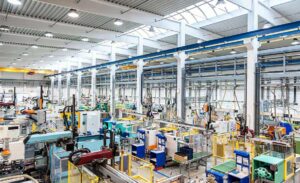 When a production line knows what will happen in 10 minutes 5 Feb - Every disruption on a production line creates stress. Machines stop, people wait, production slows down, and decisions must be made under pressure. In the food industry—especially in the production of filled pasta products, where the process follows a strictly sequential set of technological steps—one unexpected issue at the end of the line can bring the entire production flow to a halt. But what if the production line could warn in advance that a problem will occur in a few minutes? Or help decide, already during a shift, whether it still makes sense to plan packaging later the same day? These were exactly the questions that stood at the beginning of a research collaboration that brought together industrial data, artificial intelligence, and supercomputing power.
When a production line knows what will happen in 10 minutes 5 Feb - Every disruption on a production line creates stress. Machines stop, people wait, production slows down, and decisions must be made under pressure. In the food industry—especially in the production of filled pasta products, where the process follows a strictly sequential set of technological steps—one unexpected issue at the end of the line can bring the entire production flow to a halt. But what if the production line could warn in advance that a problem will occur in a few minutes? Or help decide, already during a shift, whether it still makes sense to plan packaging later the same day? These were exactly the questions that stood at the beginning of a research collaboration that brought together industrial data, artificial intelligence, and supercomputing power. Who Owns AI Inside an Organisation? — Operational Responsibility 5 Feb - This webinar focuses on how organisations can define clear operational responsibility and ownership of AI systems in a proportionate and workable way. Drawing on hands-on experience in data protection, AI governance, and compliance, Petra Fernandes will explore governance approaches that work in practice for both SMEs and larger organisations. The session will highlight internal processes that help organisations stay in control of their AI systems over time, without creating unnecessary administrative burden.
Who Owns AI Inside an Organisation? — Operational Responsibility 5 Feb - This webinar focuses on how organisations can define clear operational responsibility and ownership of AI systems in a proportionate and workable way. Drawing on hands-on experience in data protection, AI governance, and compliance, Petra Fernandes will explore governance approaches that work in practice for both SMEs and larger organisations. The session will highlight internal processes that help organisations stay in control of their AI systems over time, without creating unnecessary administrative burden.
